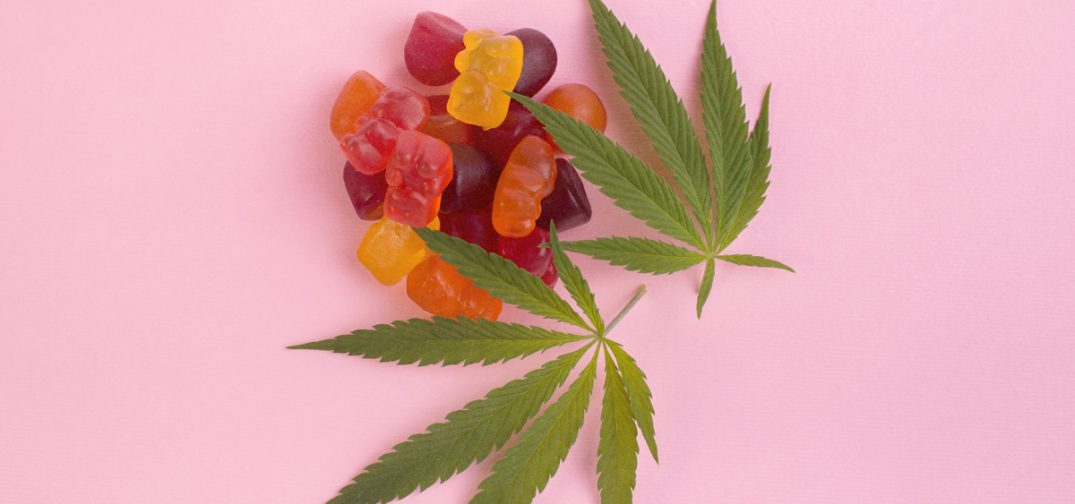A recently surfaced September 15, 2021, letter by a high-ranking official within the federal Drug Enforcement Administration (DEA) appears to suggest that hemp-derived delta-8 tetrahydrocannabinol (THC) is federally legal. Interpretations of the letter are varied, however, and the document itself remains many steps removed from an actual description or declaration of the law.
The letter is written by Dr. Terrence L. Boos — the Section Chief of the Drug & Chemical Evaluation Section, Office of Diversion Control, DEA — in response to the Executive Secretary of Alabama’s Board of Pharmacy, who had requested a “control status update” from the agency regarding delta-8 THC.
The following is an abridged excerpt from the letter:
“[Delta-8 THC] is a tetrahydrocannabinol substance contained in the plant Cannabis sativa L. and also can be produced synthetically from non-cannabis materials. The [Controlled Substances Act] CSA classifies tetrahydrocannabinols as controlled in schedule I. … Subject to limited exceptions, for the purposes of the CSA, the term ‘tetrahydrocannabinols’ means those ‘naturally contained in a plant of the genus Cannabis (cannabis plant), as well as synthetic equivalents of the substances contained in the cannabis plant and/or synthetic substances, derivatives, and their isomers with similar chemical structure and pharmacological activity to those substances contained in the plant.’ … Thus, 8-THC synthetically produced from non-cannabis materials is controlled under the CSA as a ‘tetrahydrocannabinol.’
“The CSA, however, excludes from control ‘tetrahydrocannabinols in hemp…’ Hemp, in turn, is defined as ‘the plant Cannabis sativa L. and any part of that plant, including the seeds thereof and all derivatives, extracts, cannabinoids, isomers, acids, salts, and salts of isomers, whether growing or not, with a delta-9 tetrahydrocannabinol (9-THC) concentration of not more than 0.3 percent on a dry weight basis.’ … Accordingly, cannabinoids extracted from the cannabis plant that have a 9-THC concentration of not more than 0.3 percent on a dry weight basis meet the definition of ‘hemp’ and thus are not controlled under the CSA.”
The letter appears to suggest that DEA recognizes there to be three types of delta-8 THC:
- Delta-8 THC that occurs naturally in Cannabis sativa L. plants.
- Delta-8 THC that was synthetically created from hemp-derived cannabinoids, like CBD.
- Delta-8 THC that was synthetically created from non-cannabis plant materials.
The letter also may contain an important clarification: DEA stated last year that “synthetic” cannabinoids were illegal under the CSA, but what’s not clear is what exactly — at least in the eyes of federal officials — constitutes a synthetic cannabinoid. Currently, virtually all of the commercially available delta-8 products are made by synthetically converting hemp-derived cannabinoids, like CBD, into delta-8 THC. Considering that hemp and all of its derivatives are federally legal, the letter may be hinting that DEA recognizes the validity of delta-8 THC products so long as they were synthesized from legal, hemp-derived cannabinoids, and it could be a sign that DEA is preparing to make regulatory allowances for the newly booming cannabinoid.
However, while some industry stakeholders have sprung to celebrate the possible admission, DEA may have been purposely vague in the letter’s wording — additionally, a leaked letter correspondence does not carry the same weight as an official ruling or legal action.
It’s also possible that delta-8 THC could be considered an analogue to a Schedule 1 controlled substance and therefore illegal under the federal Analogue Act, which dictates that any substance meant for human consumption that is substantially similar to a controlled substance could be subject to the same prohibition laws. Although that is further complicated because while delta-8 THC is substantially similar to the delta-9 THC in cannabis, it is likewise substantially similar to the delta-9 THC in hemp, which is technically legal (so long as the plant’s total THC content is below the 0.3% threshold).
Get daily cannabis business news updates. Subscribe
End
